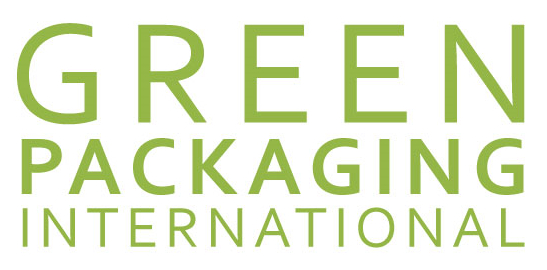Super User
Statement on Removal of Tariff on Canadian Unwrought Aluminum
Aluminum Association president & CEO Tom Dobbins issued the following statement in response to today’s announcement by the Office of the U.S. Trade Representative (USTR) removing recently reimplemented Section 232 tariff on imports of unwrought, or P1020, aluminum from Canada into the United States. The decision was made after “the United States … determined that trade in non-alloyed, unwrought aluminum is likely to normalize in the last four months of 2020, with imports declining sharply from the surges experienced earlier in the year,” consistent with industry expectations.
 “Removing these disruptive and unnecessary tariffs on Canadian aluminum was the right decision for the U.S. aluminum industry and its 162,000 workers. The Aluminum Association and its members support tariff and quota free trade within North America consistent with the recently implemented U.S.-Mexico-Canada Agreement (USMCA). Especially as the industry continues to recover from the worst of the COVID-driven demand disruptions, it is vital that we keep North American aluminum supply chains open and unencumbered,” said Dobbins.
“Removing these disruptive and unnecessary tariffs on Canadian aluminum was the right decision for the U.S. aluminum industry and its 162,000 workers. The Aluminum Association and its members support tariff and quota free trade within North America consistent with the recently implemented U.S.-Mexico-Canada Agreement (USMCA). Especially as the industry continues to recover from the worst of the COVID-driven demand disruptions, it is vital that we keep North American aluminum supply chains open and unencumbered,” said Dobbins.
The Aluminum Association, the Aluminium Association of Canada, more than 15 U.S. aluminum industry CEOs, organized labor groups and countless industry groups all support the continued free flow of metal in North America consistent with the U.S.-Mexico-Canada Agreement (USMCA). Both Canada and the U.S. have shown a strong commitment to trade enforcement by investing in aluminum import monitoring systems. The Aluminum Association and the Aluminium Association of Canada support continued import monitoring throughout the USMCA region including Mexico.
About The Aluminum Association
The Aluminum Association represents aluminum production and jobs in the United States, ranging from primary production to value added products to recycling, as well as suppliers to the industry. The association is the industry’s leading voice, representing companies that make 70 percent of the aluminum and aluminum products shipped in North America. The association develops global standards, business intelligence, sustainability research and industry expertise for member companies, policymakers and the general public. The aluminum industry helps manufacturers produce sustainable and innovative products, including more fuel-efficient vehicles, recyclable packaging, greener buildings and modern electronics. In the U.S., the aluminum industry supports $174 billion in economic activity and nearly 700,000 jobs. For more information visit https://www.aluminum.org
CASE STUDY: replacing plastic packaging
Business cards are just one of the digital and wide format print and promotional merchandise offerings from WE DO. Print whose workers are young people attending the #NoLimits course run by Commercial Foundation. This social enterprise was established in 2015 and supports disadvantaged young people to develop practical skills to help them find a job or future career.
Commercial Foundation were packing their orders for business cards into standard 70 mm-high plastic business card boxes which were then packed in a bubble-lined mailing bag for posting. As well as not being very environmentally friendly, the packages were also too big to fit through letterboxes.
A drive to reduce its use of plastics prompted the Commercial Foundation to seek a more user- and environmentally friendly alternative.
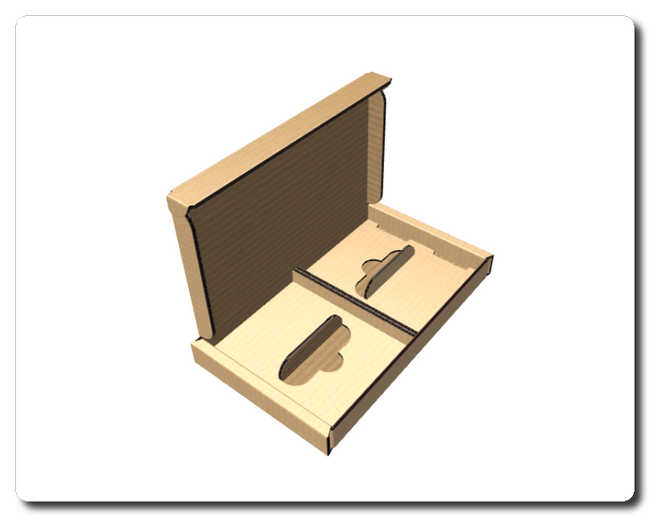
THE ANTALIS SOLUTION
After taking the time to understand the complete process around WE DO. Print’s business card service, Antalis Smart Packaging Centre came up with workable solution.
Using the information provided, Antalis’s packaging technologists put forward three options: a box and lid design and two variations based on the 0427 pizza box structure. The team also advised on the possibilities of printing the box to enhance the customer experience.
Commercial Foundation’s preferred design of the three was an 0427 style box with four compartments, made from FSC-certified board. It allows the customer address to be affixed to one side of the box and space for a message from Commercial Foundation along with environmental information is printed on the other sides. The new box was put through its paces to assess ease of assembly, durability, and postability. Following the successful trial, the box is now in use and is bringing numerous benefits to both Commercial Foundation and its customers:
- Customer experience - more convenient and easier to recycle – aligning with public demand for more environmentally friendly products – the cardboard box also offers a handy place to store the business cards.
- Environmental – Made from FSC-certified board, the new box design has eliminated use of plastic and secondary packaging materials. It can also be recycled easily.
- Cost saving – the new box design is slightly more expensive than the plastic box being used originally, however the elimination of the secondary packaging has resulted in an overall cost reduction.
Ian Whitcombe, National Key Account Manager for Antalis Packaging, commented: “The whole project, from the initial consultation to roll-out took just six weeks. It’s a great example of how taking the time to really listen to our customers’ needs, challenges and frustrations can result in a really innovative box design that achieves far more than the original goal.”
About Antalis
Antalis (Euronext Paris: ANTA) is the leader in B2B distribution of Papers (number 1 worldwide outside the United States) and industrial Packaging, and number two in the distribution of Visual Communication media in Europe. In 2019, the Group reported sales of €2.1 billion and employed 4,700 people serving over 115,000 customers, companies and printers in 39 countries. Through its 117 distribution centres, Antalis makes around 11,000 deliveries per day worldwide and it distributed 1.1 million tons of paper in 2019.
BillerudKorsnäs is the best in the industry in sustainability
In its latest ESG Risk Ratings, the sustainability analysis company Sustainalytics has ranked BillerudKorsnäs the most sustainable enterprise to invest in within the packaging sector. For the renowned Swedish company, this top ranking is proof positive that its unswerving focus on sustainability has paid off. The Dow Jones Sustainability Index already ranks BillerudKorsnäs the most sustainable packaging company in the world.
In its annual assessment, the sustainability analysis company Sustainalytics rates BillerudKorsnäs as having low risk exposure combined with a strong approach to sustainability issues. In fact, BillerudKorsnäs was awarded an ESG Risk Rating score of 10.0, where low figures represent low risk, putting the company in first place among all the packaging companies analysed.
 BillerudKorsnäs has improved its ESG score in relation to last year, moving up the rankings to an impressive 88th place among the 12,000 companies included in the Sustainalytics evaluation. According to Sustainalytics, BillerudKorsnäs has the lowest sustainability risk within its industry at global level, resulting in it being awarded top spot among a total of 80 packaging companies. BillerudKorsnäs is also assessed as presenting a lower ESG risk than any of the paper and forestry companies included in the Sustainalytics evaluation.
BillerudKorsnäs has improved its ESG score in relation to last year, moving up the rankings to an impressive 88th place among the 12,000 companies included in the Sustainalytics evaluation. According to Sustainalytics, BillerudKorsnäs has the lowest sustainability risk within its industry at global level, resulting in it being awarded top spot among a total of 80 packaging companies. BillerudKorsnäs is also assessed as presenting a lower ESG risk than any of the paper and forestry companies included in the Sustainalytics evaluation.
- “The improvement proves that all our hard work and tightly structured sustainability initiatives, where we focus on those areas where we can make the biggest difference, are being recognised from the perspective of investment as well,” says Malin Ljung Eiborn, Director Sustainability at BillerudKorsnäs.
The areas in which BillerudKorsnäs is assessed as being particularly strongly placed are carbon dioxide emissions from own production and work with health and safety.
- “I am reminded on a daily basis of how important sustainability issues are for both institutional investors and smaller savers. So it is delightful to see that Sustainalytics has awarded us such a high rating,” adds Lena Schattauer, Head of Investor Relations at BillerudKorsnäs.
To read more about Sustainalytics and ESG Risk Ratings, visit: https://www.sustainalytics.com/esg-ratings/.
BillerudKorsnäs supplies packaging materials and solutions that challenge conventional packaging for a sustainable future. We are a world-leading provider of primary fibre-based packaging materials and have customers in over 100 countries. The company operates eight production units in Sweden, Finland and the UK, employing 4,500 people in more than 13 countries. BillerudKorsnäs generates an annual turnover of approximately SEK 24 billion and is listed on Nasdaq Stockholm. www.billerudkorsnas.com
Corrugated packaging market to top $200 billion by 2025 despite Covid-19 says Smithers research
The latest data for the global container board and corrugated packaging market shows that consumption of the latter will reach 160.5 million tonnes in 2020, with a value of $170.7 billion.
Expert analysis in the Smithers report – The Future of Global Corrugated Board Packaging to 2025 forecasts that global corrugated board will increase at a compound annual growth rate (CAGR) of 3.8% across 2020-2025 to reach $205.7 billion. The volume of board consumed worldwide will increase at a slightly slower rate to reach 193.2 million tonnes in that year.
The Smithers study tracks micro and macro trends in this industry for 2015-2025. This is segmented across for six corrugated grades – unbleached kraftliner (UBKL), white-top kraftliner (WTKL), unbleached testliner (UBTL), white-top testliner (WTTL), semi-chemical fluting (SCF), waste-based fluting (WBF); 15 end-use applications; and 63 countries and world regions.
Forecast changes in regional apparent consumption of containerboard, 2019–25
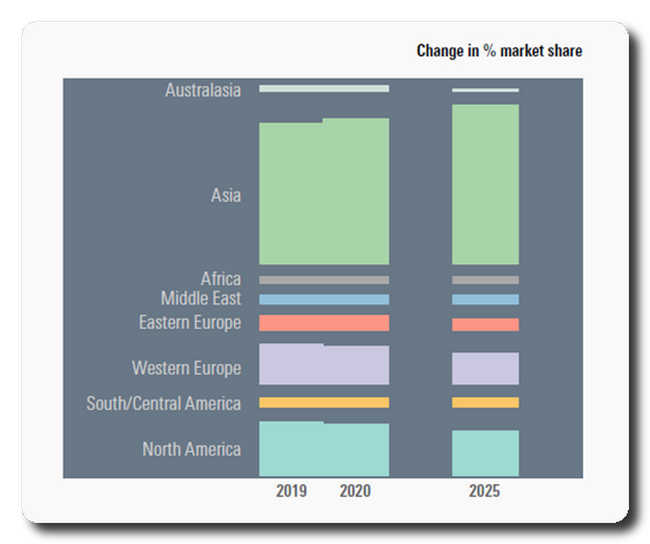 Source: Smithers
Source: Smithers
The Covid-19 pandemic will see a marked impact on corrugated consumption in certain sectors and regions, especially those worst affected by the virus. In terms of end-uses food shipments will be least affected while other consumer items will see a more significant drop.
These will be mitigated in developed regions by the strong increase in e-commerce as stay-at-home consumers undertake more online shopping. Several board converters have developed e-commerce specific delivery designs to capitalise on this, accentuating what the industry has already identified as a key growth segment.
In the longer term Smithers analysis identifies the following major business trends that will support further use of corrugated board packaging.
- Recycling and sustainability will remain a key concern for converters and brand owners; but oversupply of materials is liable to generate new price pressures
- Demand for finer flute grades for high-quality printed cases and as alternatives to folding cartons will rise
- Further pressure for lightweighting of corrugated designs will have a negative impact on volume sales as less fibre delivers an equivalent required performance
- E-commerce will continue to expand, even once lockdown (shelter-in-place) orders have been revoked; this will generate new need for white-top liner that can receive
high-quality print graphics in particular - Dimensional (DIM) weighing in packaging, and the focus on minimising extraneous protective components will slow some of the expanded use of corrugated in direct-to-consumer e-commerce shipping
- There will be more use of retail-ready packaging formats, as more modern retailing expands into developing markets in Asia and elsewhere
- Digital (inkjet) printing will increase overall demand for better quality substrates and expand the options for packaging printers in both standard and RRP corrugated formats
- New coating technologies, including bio-based polymer solutions will help improve the recyclability of coated corrugated grades
- Industry consolidation will continue leading to greater concentration of capacities and more uniformity for users.
These trends and the essential technologies that will help make them a reality over the next five years are examined in depth in the Smithers study. They are used to provide context to the wider picture of the industry across 2015-2025 given in the Smithers data set, with over 350 data tables and figures. Combined these provide an unparalleled level of insight into current and future demand for containerboard and corrugated packaging.
About Smithers
Founded in 1925 and headquartered in Akron, Ohio, Smithers is a multinational provider of testing, consulting, information, and compliance services. With laboratories and operations in North America, Europe, and Asia, Smithers supports customers in the transportation, life science, packaging, materials, components, consumer, and energy industries. Smithers delivers accurate data, on time, with high touch, by integrating science, technology, and business expertise, so customers can innovate with confidence. www.smithers.com
Stora Enso invests in Forshaga to develop sustainable barrier solutions
Stora Enso is making an investment in dispersion barrier technology at its Forshaga site in Sweden, as a step in its innovation agenda. The investment of approximately EUR 10 million enables the development and production of paperboard with barrier properties that are easier to handle in a recycling process, have a lower carbon footprint and can be compostable in industrial facilities. The new equipment is expected to come into use during the second quarter of 2021.
Stora Enso Forshaga manufactures and develops barrier solutions that are required in certain packaging, for instance to protect against liquid, moisture, oxygen or fat. Liquid packaging, beverage cups and certain food packaging are some of the products that have a barrier which serves to protect the packaged product, while also ensuring that the packaging maintains its user-qualities. The investment in new dispersion technology aims to achieve the desired barrier properties in a more sustainable way.
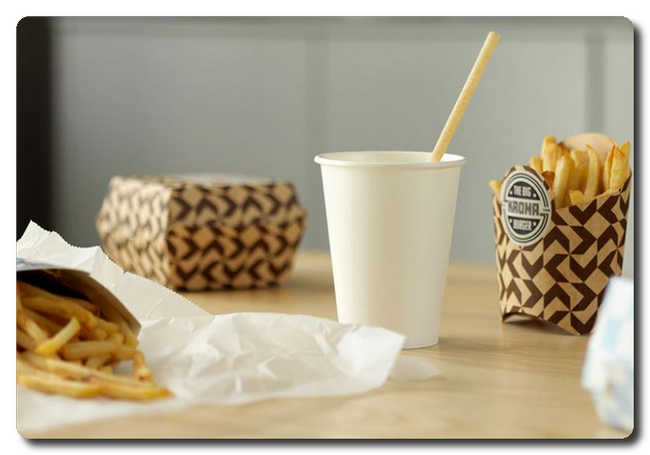 Food Service Products
Food Service Products
“Stora Enso wants to minimise the use of fossil-based materials and replace them with renewable solutions based on wood fiber. By investing in the development of sustainable packaging barriers, we help our customers and consumers become more eco-friendly while creating value in the circular bioeconomy. The commercialisation of fiber-based products with barrier properties that have a lower carbon footprint and work better in a recycling system is an important development area within food packaging,” says Hannu Kasurinen, Executive Vice President of Stora Enso’s Packaging Materials division.
Stora Enso Forshaga has an annual capacity of approximately 120 000 tonnes of barrier coating across two machines/coating lines, with around 100 employees. Since the beginning of this year, the Forshaga site has also become a competence center within Stora Enso’s Packaging Materials division, tasked with producing and developing new bio-based barrier technologies and products.
Part of the bioeconomy, Stora Enso is a leading global provider of renewable solutions in packaging, biomaterials, wooden constructions and paper. We believe that everything that is made from fossil-based materials today can be made from a tree tomorrow. Stora Enso has some 25 000 employees in over 30 countries. Our sales in 2019 were EUR 10.1 billion. Stora Enso shares are listed on Nasdaq Helsinki (STEAV, STERV) and Nasdaq Stockholm (STE A, STE R). In addition, the shares are traded in the USA as ADRs (SEOAY). storaenso.com
Trivium Packaging, a global leader in metal packaging chooses Shopfloor-Online MES software
Lighthouse Systems is pleased to announce that Trivium Packaging, a global leader in metal packaging, has selected Lighthouse’s Shopfloor-Online* manufacturing execution system (MES) for the Company’s North American manufacturing operations in Roanoke, Virginia.
 The expected benefits of Shopfloor-Online to the Roanoke plant are:
The expected benefits of Shopfloor-Online to the Roanoke plant are:
• Have one place for all Quality related data. This will greatly reduce the time it takes to generate reports
• Dashboards on the shop floor for Supervisor and Manager to increase overall visibility
• Downtime data integrated with Quality for better overall analysis
• Eliminate paper on the shop floor
• Eliminate the use of Excel or other ‘home grown’ silo systems used for data collection
Rudy Shufeldt, the Continuous Improvement Manager for North America commented, “We are excited to leverage the power of Shopfloor-Online to drive and sustain process and quality improvement to better serve our customers. With Shopfloor-Online we were able to eliminate paperwork. This coupled with their comprehensive real time dashboards takes us to another level in plant process performance transparency across our production lines and key plant processes”.
Joe Russotti, Business Manager at Lighthouse Systems, said, “We are very pleased to have Trivium Packaging join the growing list of Shopfloor-Online customers in the Consumer Goods Packaging space.”
*Shopfloor-Online is a trademark of Lighthouse Systems Ltd.
About Trivium Packaging:
Trivium Packaging is a leading global supplier of value-added, infinitely-recyclable, metal packaging solutions for the world’s leading brands. The consistent pursuit of market-leading innovation, quality and customer service, backed by investment in our people and processes, has underpinned our rapid growth over the past two decades.
We remain focused on continuous improvement in all aspects of our business to deliver long-term, sustainable success for our stakeholders. Trivium Packaging has a truly global presence. We operate in more than 60 locations around the globe, employing approximately 8,000 people and have global revenue of approximately $2.7bn.
Visit Trivium Packaging for more information.
About Lighthouse Systems:
Lighthouse Systems, a global vendor of Manufacturing Execution Systems (MES) software, enables Smart Manufacturing through the digitisation of manufacturing processes and operations. With functionalities across production, quality, inventory/logistics and maintenance, Lighthouse’s MES Shopfloor-Online software removes traditional organisational silos to optimise business processes. Creating an uninterrupted thread of real-time critical data throughout manufacturing operations, the MES empowers organisations, from plant operatives to executives, to drive improvement in efficiency, output, compliance and customer satisfaction.
Shopfloor-Online is modular with out-of-the-box functionalities giving organisations the flexibility of a step-by-step approach to digitisation. Web-based, Shopfloor-Online is particularly suited to multi-site rollout and is available in a range of hosting options: on premise, corporate data centre or in the cloud.
Industries served: packaging, food and beverages, automotive (OEM and Tier 1 – Tier 2), aerospace, building and construction, pharma / life science, and sustainable energy.
Visit Lighthouse Systems for more information.
Metsä Board launches a state-of-the-art Excellence Centre to accelerate paperboard and packaging innovation
Growing consumption and demand for more sustainable packaging is boosting the need for new innovations. To develop solutions for packaging today and into the future, Metsä Board, part of Metsä Group, has started up operations in its new Excellence Centre at the unique bioeconomy site in Äänekoski, Finland.
The centre, with its cutting-edge technology for R&D, packaging design and paperboard and packaging performance, aims to accelerate material and packaging innovation and provide a collaboration platform for customers and technology partners globally.
“As the amount of packaging continues to grow, new, sustainable solutions are needed to replace fossil-based materials and ensure circularity. The Excellence Centre concept enables paperboard and packaging solutions that look at the entire value chain, and not just at its separate parts. With the material knowhow, competence and tools now available, we can optimise performance throughout the packaging lifecycle”, says Mika Joukio, CEO of Metsä Board.
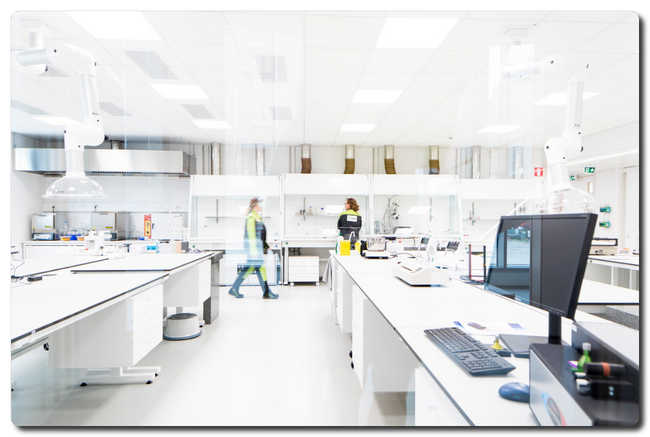 Metsä Board Excellence Centre
Metsä Board Excellence Centre
The Excellence Centre, which covers a total of 1,500 square meters, includes R&D facilities, a packaging design studio, a customer feedback centre and a state-of-the art laboratory providing more than 100 different measurement methods and analytics. The centre also features a virtual store and a computer-aided engineering (CAE) tool to allow sophisticated simulation and analysis of packaging performance.
Metsä Board’s Excellence Centre brings together Metsä Board’s own competencies and deep expertise in fibre-based solutions with that of various experts and partners, such as material suppliers, technology providers, start-up companies, universities and research companies. Virtual collaboration workshops have also been developed to enable joint development and co-creation if physical meetings are not possible.
“Renewable and recyclable fresh fibre paperboard can be utilised for packaging in many ways. Fibre-based packaging has a lot to offer, and together with our partners and the new Excellence Centre, we are able to explore the possibilities even more comprehensively. I am excited about the opportunities this will bring for today and the future,” says Metsä Board’s CEO Mika Joukio.
Äänekoski’s world-unique bioeconomy ecosystem includes a next-generation bioproduct mill, a paperboard mill, plywood mill, the Pro Nemus visitor centre, and a textile fibre demo plant.
Metsä Board
www.metsaboard.com
Metsä Board is a leading European producer of premium fresh fibre paperboards and forerunner in sustainability. We produce premium lightweight folding boxboards, food service boards and white kraftliners for consumer goods packaging as well as retail-ready and food service applications. We work together with our customers on a global scale to innovate solutions for better consumer experiences with less environmental impact. The pure fresh fibres Metsä Board uses are a renewable resource, traceable to origin in sustainably managed northern forests. We aim for completely fossil-free mills and raw materials by 2030.
The global sales network of Metsä Board supports customers worldwide, including brand owners, retailers, converters and merchants. In 2019, the company’s sales totalled EUR 1.9 billion, and it has approximately 2,400 employees. Metsä Board, part of Metsä Group, is listed on the Nasdaq Helsinki.
DS Smith and Laithwaite’s Champion the Circular Economy with a Certified Closed Loop Solution
Collaboration creates closed loop recycling system for up to 3 million boxes annually
DS Smith, the leading provider of sustainable packaging solutions, and Laithwaite’s Wine, the UK’s largest online wine merchant, have joined forces to certify a closed loop recycling system across the two companies’ supply chains.
Using cardboard wine cases made from 100% recycled material, Laithwaite’s has been delivering wine in the UK for over 10 years. Now, working in partnership with DS Smith, it is able to deliver a closed loop recycling system that ensures greater visibility across the supply chain, allowing it to track cases from production, through to delivery, collection, recycling and finally as the material is turned back into new cases.
At its distribution centre in Gloucester, Laithwaite’s handles imports of wine from across the world. Once unpacked, cases are transported to the DS Smith Paper Mill in Kemsley, Kent, to be recycled into new packaging material before being sent to DS Smith Packaging in Launceston to produce new cases. The cases will be used by Laithwaite’s for e-commerce distribution to its customers across the UK. This is all part of the 14 day ‘box to box’ packaging recycling process that underpins DS Smith’s sustainable business model.
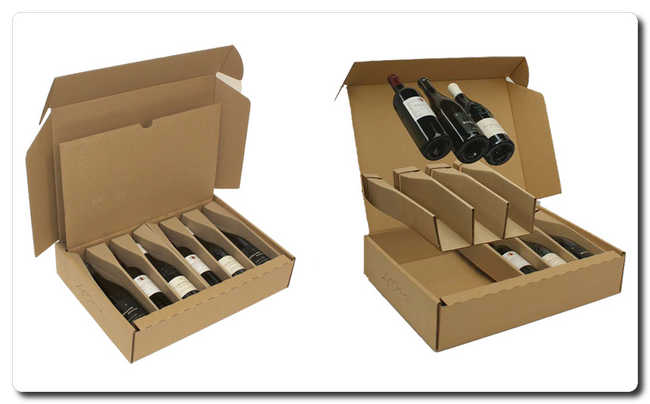
Andrew Hawker, Head of Logistics at Laithwaite’s Wine commented: ”We are delighted that through our partnership with DS Smith we are able to keep our cardboard for recycling right here in the UK. Via the closed-loop model, we can give a new lease of life to our recycling which will be used in the packaging we send to our customers.
Balancing the sustainability and protection needs of packaging can be a challenge, especially in the e-commerce sector where the unboxing experience is a vital component of engaging and establishing a connection with our customers.”
As consumers demand to know where the products they buy have come from, it has become increasingly crucial for brands to demonstrate sustainable business operations. Closed loop systems will be a vital response to this trend, particularly as recent research showed that UK adults admit to throwing 30% of their recyclable material into general waste and a further 83% were not clear which types of packaging can and can’t be recycled*.
Tom Campbell-White, European Strategic Development Director at DS Smith commented: “Laithwaite’s was one of our first customers to be awarded our Closed-Loop Certification. Championing the circular economy is vital for companies everywhere as they drive to meet the changing expectations and demands of increasingly environmentally conscious consumers. Providing Laithwaite’s with a fully auditable recycling and recovery route means they can certify and track its sustainability targets. At DS Smith, we are proud of our closed loop business model and the fact we are a net positive recycler, meaning we are responsible for recycling more packaging than we put on the market.”
The two companies also partnered on increasing the performance of the cardboard boxes and eliminating plastic usage with an innovative design project using DISCS™ technology. The technology provided Laithwaite’s with boxes made using the optimal amount of paper for the best level of protection to keep its glass wine bottles protected during delivery.
References:
*ONE POLL / RESEARCH based on a survey of 2,000 UK adults between 22/2/2020 and 2/3/2020
About DS Smith:
DS Smith is a leading provider of corrugated packaging worldwide, supported by recycling and papermaking operations. Headquartered in London and a member of the FTSE 100, DS Smith focuses on creating innovative sustainable packaging solutions in 34 countries employing around 30,000 people. Using the combined expertise of its divisions – including Packaging, Recycling, Paper – DS Smith works with customers to deliver solutions that reduce complexity and deliver results throughout the supply chain. Its history can be traced back to the box-making businesses started in the 1940s by the Smith family.
Working together for increased sustainability: barrier packaging paper meets machine manufacturer
Sappi and Rovema seal partnership with their first successful collaborative project
One of the key concerns of the packaging industry is the development of sustainable value chains and environmentally friendly packaging processes. With this in mind, the machine manufacturer Rovema and the speciality paper manufacturer Sappi, two international leaders when it comes to sustainability, have entered into a strategic partnership. The two companies now cap their previous development work with the first successfully completed project for a well-known cereal manufacturer that switched its fully automated production to paper-based, sealable barrier pouches.
- Paper-based barrier packaging solutions
- High precision in the interaction between material and machine
- Minimized loss of performance during material changeover
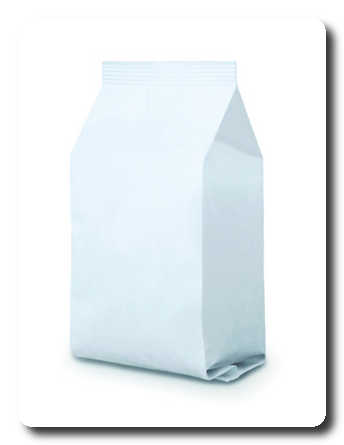 Sappi is a leading provider of sustainable wood fibre products and material solutions. Rovema was particularly impressed by Sappi’s expertise in packaging and speciality papers with integrated barrier properties and sealability. Like Sappi, the packaging machine manufacturer from Fernwald, Germany, strives for continuous development as a ‘sustainable company’ as part of its firmly established mission statement. In addition to its approach of optimizing existing machine technology, such as the service life of wear parts and general recycling management, Rovema pays special attention to the idea of transitioning packaging materials. This involves reducing the use of plastic film and moving towards paper-based solutions and recyclable plastic materials.
Sappi is a leading provider of sustainable wood fibre products and material solutions. Rovema was particularly impressed by Sappi’s expertise in packaging and speciality papers with integrated barrier properties and sealability. Like Sappi, the packaging machine manufacturer from Fernwald, Germany, strives for continuous development as a ‘sustainable company’ as part of its firmly established mission statement. In addition to its approach of optimizing existing machine technology, such as the service life of wear parts and general recycling management, Rovema pays special attention to the idea of transitioning packaging materials. This involves reducing the use of plastic film and moving towards paper-based solutions and recyclable plastic materials.
The exceptional quality of Sappi’s products, its consultation service, portfolio and the outstanding properties of its barrier papers shone through. The two companies have been in partnership since 2018 and have developed integrated packaging solutions as a complete package for customers that are looking to prepare for the future and establish a strong foothold in the market.
Paper-based packaging materials in the packaging process
‘There are not many paper manufacturers that can combine key properties such as barrier functions and sealability,’ says Peter Lökös, Vice President Sales at Rovema GmbH, in relation to the new cooperation between his company and Sappi. ‘It was clear to us from the very beginning that we would stand to benefit substantially from developing our customer projects in direct cooperation with Sappi. The considerable knowledge and experience of the speciality paper experts enabled us to take a big step forward.’ This is because, unlike in the case of pouches and flat bags made from composite materials, as the more sustainable, paper-based alternatives need to be handled with far more care during the production process. In automated packaging processes, for example, paper tolerates only a small amount of tension transfer and tears more easily. The perforation resistance of the paper used also needs to be taken into account much more during filling.
René Köhler, Head of New Business Development Packaging Solutions, Division Innovation & Sustainability at Sappi, understands how important it is to have a precise understanding and analysis of the application demand, in order to choose the right paper qualities. ‘There is no need to use a high-barrier paper such as Sappi Guard OHG if a lower version such as Sappi Guard Nature MS can offer the necessary protection and functionality. To achieve top-class results, detailed knowledge of the product requirements on the one hand and the specific properties of the different papers on the other hand is very important for ultimately making the choice of packaging material.’
Performance precision makes the difference
High precision in the overall movement sequence of the equipment is also required to ensure successful use of environmentally friendly packaging materials – something which is a unique selling point of Rovema. In contrast to its competitors, the machine manufacturer relies on completely servo motor-driven conveying and sealing technology. In addition, all steps from forming to sealing the pouches are perfectly synchronized down to the finest detail to minimize the stress on the packaging material.
Strong partners for customers
Thanks to this collective expertise and integrated cooperation of both partners, the typical performance losses of 30 per cent or more when switching to a paper-based packaging material were reduced to just 10 to 15 per cent in the pilot project. Two further application projects are already in the development stage. The two companies are also well positioned to successfully implement paper-based packaging solutions for future customer demands. The focus will be on implementation for high-throughput applications in the area of confectionery and snacks. The two partners will present the initial results soon.
About Rovema:
ROVEMA GmbH has been developing and building packaging machines and systems that meet the complex demands of the modern circular economy for over 60 years. ROVEMA adopts a holistic approach and takes the environment, market, product and packaging in projects into account from the very beginning. This enables the development of efficient, future-proof packaging machines with high availability. The top priority for ROVEMA is a sustainable solution that meets the needs of the product being packaged as well as the requirements in terms of logistics, packaging materials, shelf life and energy efficiency. A blueprint for success – ROVEMA has supplied more than 30,000 machines and systems worldwide and employs over 600 people. ROVEMA achieved a turnover of around €100 million in 2019.
